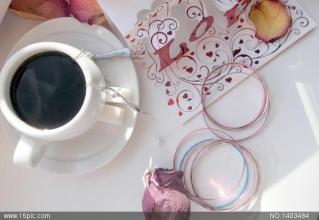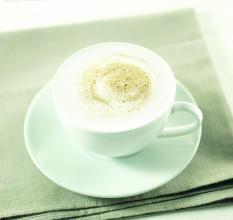Introduction to the characteristics of high-quality Salvadoran coffee flavor manor producing area
Salvadoran coffee:
Country of origin El Salvador
With sour, bitter, sweet and other taste characteristics, the best baking degree is moderate, deep.
Type of coffee:
Analysis of coffee
Etymology: Greek KAWEH
Meaning: strength and enthusiasm
Coffee beans: the nuts in the fruit of a coffee tree are baked in an appropriate way.
Coffee impression: Body
Aroma (Aroma)
Flavor (Flavor)
Guatemala Coffee: with excellent sour and sweet taste, it is the best material for mixed coffee and is suitable for deep roasting.
Kilimanjaro Coffee: sour, sweet, pure and fragrant, it will give off sweetness and light sour taste after moderate roasting, and soft bitterness after deep baking, which is suitable for blending.
Coppuccino: Italy's most famous fancy coffee, whirling, with cream, dried lemon, cinnamon, sweet and strong
Irish Coffee: Irish Whiskey, sugar cube or granulated sugar, pour in coffee and whipped cream after burning alcohol lamp. Fragrant, pure and strong
Zamag Blue Coffee: wine, hot coffee, dry lemon, cinnamon and sugar, sour, sweet, bitter coffee
Wicklana Coffee: Swiss mocha, mocha with fresh milk and chocolate syrup, plus fresh cream and chocolate in El Salvador, the coffee beans rich in Kuskabapa are the best, slightly lighter, fragrant, pure and slightly sour. Like Guatemala and Costa Rica, coffee in El Salvador is graded according to altitude, and the higher the altitude, the better the coffee. The best brand is Pip, whose quality has been recognized by the American Organic Certification Society. Another rare coffee is Parkmara, a hybrid of Pacas coffee and Marago Rippi coffee, best produced in western El Salvador, adjacent to Santa Ana, which is close to the border with Guatemala. Parkmara coffee is full-grained, but the aroma is not very strong. Salvadoran coffee ranks alongside Mexico and Guatemala as the producers of Asa and Merdo, and is fighting for the top one or two places in China and the United States with other countries. The highlands of origin are large coffee beans of all sizes, which are fragrant and mild in taste. Like Guatemala and Costa Rica, coffee in El Salvador is graded according to altitude. The higher the altitude, the better the coffee. It is divided into three grades according to elevation: SHB (strictlyhighgrown) = highlands, HEC (highgrowncentral) = mid-highlands, and CS (centralstandard) = lowlands. The best brand is Pipil, which is what the Aztec-Mayan (Aztec-Mayan) called coffee, which has been recognized by the American Organic Certification Society (OrganicCertifiedlnstituteofAmerica).
"Salvadoran coffee beans | w.kaf.name Salvadoran coffee refers to the coffee bean text teacher from El Salvador, a small country in South America."
Salvadoran coffee
El Salvador (ElSalvador) is one of the small countries in Central America, where coffee is light, fragrant, pure, slightly sour and characterized by excellent balance of flavor. It is a specialty of Central America. With sour, bitter, sweet and other taste characteristics, the best baking degree is moderate, deep.
The origin of coffee
In the early 1990s, guerrilla warfare greatly damaged the country's national economy, reducing coffee production from 3.5 million bags in the early 1970s to 2.5 million bags in 1990-1991. The eastern part of the country was most affected by guerrilla warfare, and many farmers and workers were forced to leave the manor. The shortage of funds has led to a sharp drop in coffee production, from 1200 kg per hectare in the past to less than 900kg per hectare today.
In addition, the government imposed an additional 15% tariff on exported coffee in 1986, that is, an additional 15% in addition to the existing 30% tax. Taxes, together with unfavorable exchange rates, greatly reduce the export of coffee and the quality of coffee.

Important Notice :
前街咖啡 FrontStreet Coffee has moved to new addredd:
FrontStreet Coffee Address: 315,Donghua East Road,GuangZhou
Tel:020 38364473
- Prev

The taste of Cuban crystal coffee is clean and meticulous. The characteristics of the manor area introduce Cuban boutique coffee.
Producing area: Escambray mountain area in central Cuba. Grades: Cuban coffee is divided into 9 grades, and Crystal mountain is the highest. Taste: sweet and refreshing, the aroma reaches the nasal cavity, the acidity is delicate, the taste is round and viscous, the Cubans drink coffee culture is brought into by French immigrants, early coffee has been popular in Cuban upper-class society, but why coffee production is still not much? Master
- Next

The taste of Nicaraguan coffee is smooth and smooth. The taste of the manor is characterized by high-quality coffee and beans.
Dipilto is one of the smallest municipalities directly under the Central Government in Nicaragua, covering an area of 106square kilometers. 90% of the population, 5000 of the residents live in rural areas. Dipilto is famous for its pine forests, warm climate, religion, people's loyalty and its high-quality coffee. Coffee cultivation is one of the traditions maintained by the local people of Dipilto. The fertile soil is full of organic matter
Related
- Detailed explanation of Jadeite planting Land in Panamanian Jadeite Manor introduction to the grading system of Jadeite competitive bidding, Red bid, Green bid and Rose Summer
- Story of Coffee planting in Brenka region of Costa Rica Stonehenge Manor anaerobic heavy honey treatment of flavor mouth
- What's on the barrel of Blue Mountain Coffee beans?
- Can American coffee also pull flowers? How to use hot American style to pull out a good-looking pattern?
- Can you make a cold extract with coffee beans? What is the right proportion for cold-extracted coffee formula?
- Indonesian PWN Gold Mandrine Coffee Origin Features Flavor How to Chong? Mandolin coffee is American.
- A brief introduction to the flavor characteristics of Brazilian yellow bourbon coffee beans
- What is the effect of different water quality on the flavor of cold-extracted coffee? What kind of water is best for brewing coffee?
- Why do you think of Rose Summer whenever you mention Panamanian coffee?
- Introduction to the characteristics of authentic blue mountain coffee bean producing areas? What is the CIB Coffee Authority in Jamaica?

